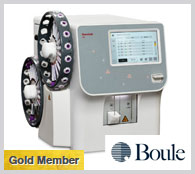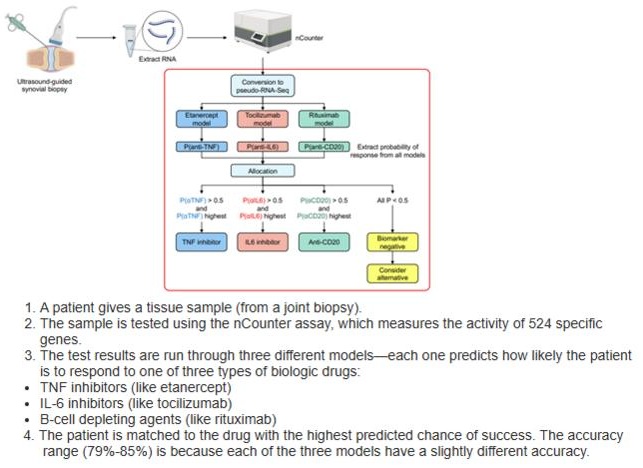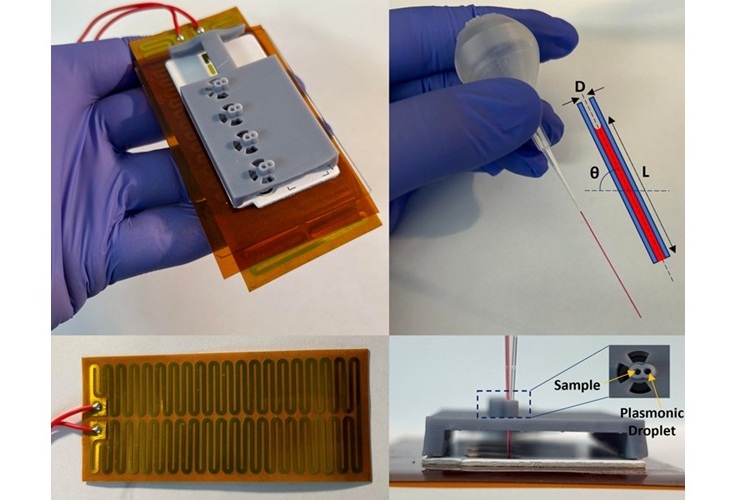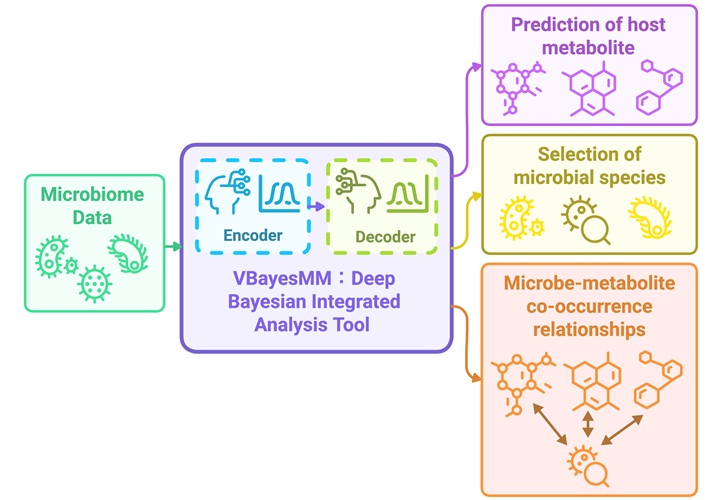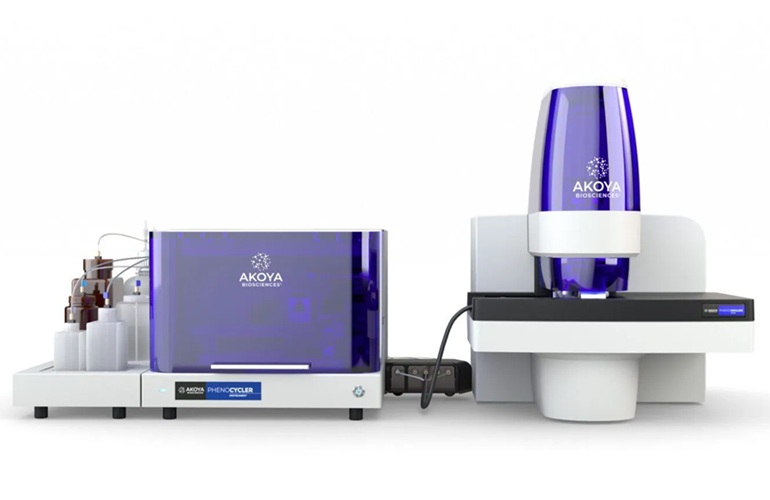Rare Genetic Variants Associated with Sudden Cardiac Death
|
By LabMedica International staff writers Posted on 04 Dec 2019 |
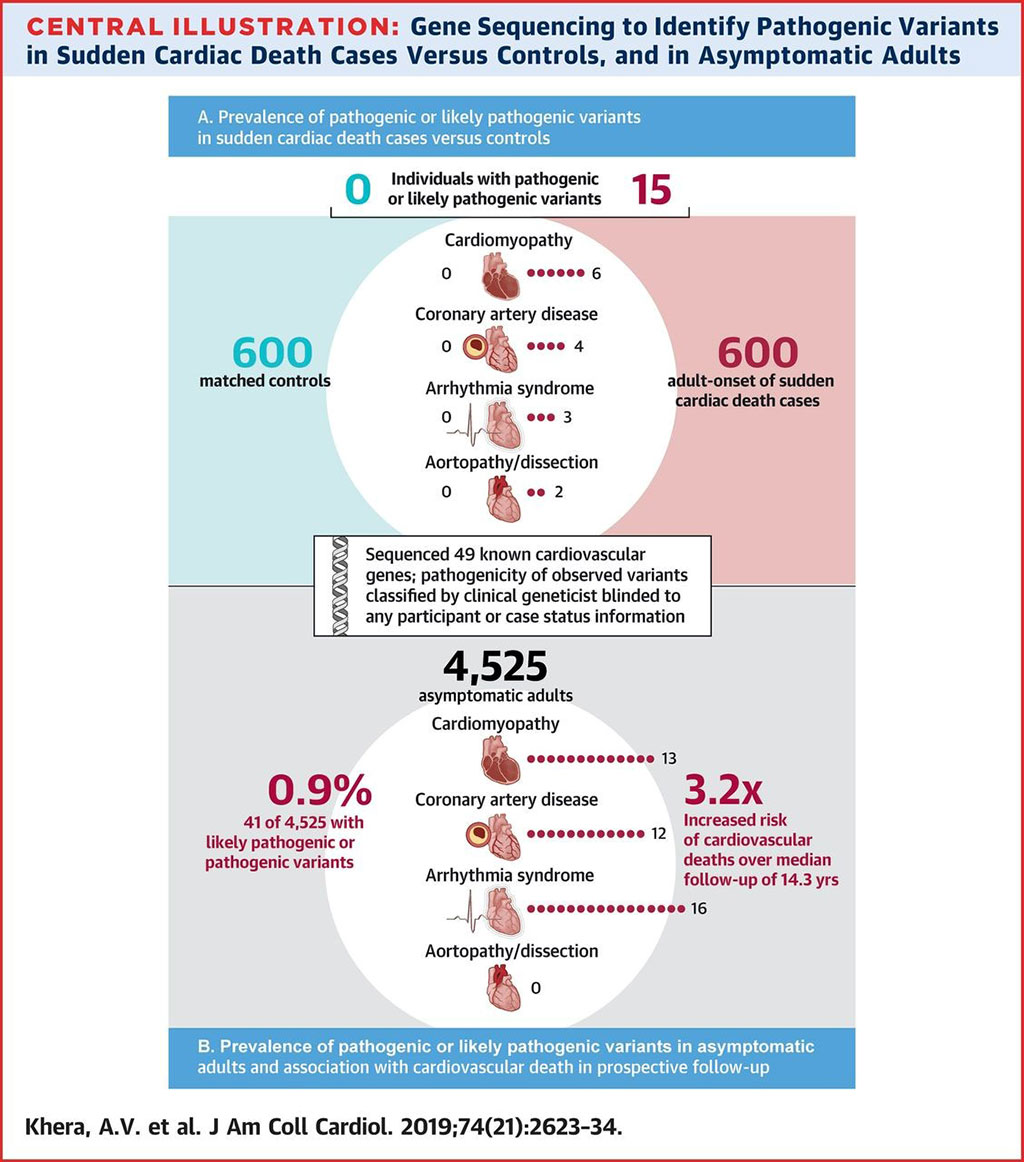
Image: Gene Sequencing identifies pathogenic variants in sudden cardiac death versus controls and asymptomatic adults (Photo courtesy of Massachusetts General Hospital)
A recent study has assessed the prevalence of rare pathogenic variants in sudden cardiac death cases versus controls, and the prevalence and clinical importance of such mutations in an asymptomatic adult population.
Sudden cardiac death occurs in around 220,000 adults in the USA annually, the majority of whom have no prior symptoms or cardiovascular diagnosis. Rare pathogenic DNA variants in any of 49 genes can pre-dispose to four important causes of sudden cardiac death: cardiomyopathy, coronary artery disease, inherited arrhythmia syndrome, and aortopathy or aortic dissection.
A large team of scientists working with the Massachusetts General Hospital (Boston, MA, USA) performed whole-exome sequencing in a case-control cohort of 600 adult-onset sudden cardiac death cases and 600 matched controls from 106,098 participants of six prospective cohort studies. Observed DNA sequence variants in any of 49 genes with known association to cardiovascular disease were classified as pathogenic or likely pathogenic by a clinical laboratory geneticist blinded to case status. In an independent population of 4,525 asymptomatic adult participants of a prospective cohort study, the team performed whole-genome sequencing and determined the prevalence of pathogenic or likely pathogenic variants and prospective association with cardiovascular death.
The scientists reported that among the 1,200 sudden cardiac death cases and controls, they identified 5,178 genetic variants and classified 14 as pathogenic or likely pathogenic. These 14 variants were present in 15 individuals, all of whom had experienced sudden cardiac death, corresponding to a pathogenic variant prevalence of 2.5% in cases and 0% in controls. Among the 4,525 participants of the prospective cohort study, 41 (0.9%) carried a pathogenic or likely pathogenic variant and these individuals had 3.24-fold higher risk of cardiovascular death over a median follow-up of 14.3 years.
Amit V. Khera, MD, MSc, an associate director of the Precision Medicine Unit, said, “This really lays the groundwork to say these are important mutations, and what's exciting is if we can identify them, we have treatments for the conditions to which they are tied. We know each of these diseases tends to run in families and there are genetic variants that cause each of these conditions”.
The authors concluded that gene sequencing identifies a pathogenic or likely pathogenic variant in a small but potentially important subset of adults experiencing sudden cardiac death; these variants are present in ∼1% of asymptomatic adults. The study was published on November 18, 2019 in the Journal of the American College of Cardiology.
Related Links:
Massachusetts General Hospital
Sudden cardiac death occurs in around 220,000 adults in the USA annually, the majority of whom have no prior symptoms or cardiovascular diagnosis. Rare pathogenic DNA variants in any of 49 genes can pre-dispose to four important causes of sudden cardiac death: cardiomyopathy, coronary artery disease, inherited arrhythmia syndrome, and aortopathy or aortic dissection.
A large team of scientists working with the Massachusetts General Hospital (Boston, MA, USA) performed whole-exome sequencing in a case-control cohort of 600 adult-onset sudden cardiac death cases and 600 matched controls from 106,098 participants of six prospective cohort studies. Observed DNA sequence variants in any of 49 genes with known association to cardiovascular disease were classified as pathogenic or likely pathogenic by a clinical laboratory geneticist blinded to case status. In an independent population of 4,525 asymptomatic adult participants of a prospective cohort study, the team performed whole-genome sequencing and determined the prevalence of pathogenic or likely pathogenic variants and prospective association with cardiovascular death.
The scientists reported that among the 1,200 sudden cardiac death cases and controls, they identified 5,178 genetic variants and classified 14 as pathogenic or likely pathogenic. These 14 variants were present in 15 individuals, all of whom had experienced sudden cardiac death, corresponding to a pathogenic variant prevalence of 2.5% in cases and 0% in controls. Among the 4,525 participants of the prospective cohort study, 41 (0.9%) carried a pathogenic or likely pathogenic variant and these individuals had 3.24-fold higher risk of cardiovascular death over a median follow-up of 14.3 years.
Amit V. Khera, MD, MSc, an associate director of the Precision Medicine Unit, said, “This really lays the groundwork to say these are important mutations, and what's exciting is if we can identify them, we have treatments for the conditions to which they are tied. We know each of these diseases tends to run in families and there are genetic variants that cause each of these conditions”.
The authors concluded that gene sequencing identifies a pathogenic or likely pathogenic variant in a small but potentially important subset of adults experiencing sudden cardiac death; these variants are present in ∼1% of asymptomatic adults. The study was published on November 18, 2019 in the Journal of the American College of Cardiology.
Related Links:
Massachusetts General Hospital
Latest Molecular Diagnostics News
- RNA Screening Test Could Detect Colon Polyps Before They Become Cancerous
- New RT-LAMP Assay Offers Affordable and Reliable Pathogen Detection for Resource-Limited Settings
- New Biomarker Panel to Enable Early Detection of Pancreatic Cancer
- Ultrarapid Whole Genome Sequencing for Neonatal and Pediatric Patients Delivers Results In 48 Hours
- AI-Enabled Blood Test Demonstrates Diagnostic, Prognostic and Predictive Utility Across Cancer Continuum
- DNA Methylation Signatures of Aging Could Help Assess Mortality Risk
- Molecular Diagnostics System Provides Lab-Quality Results at POC
- Cellular Signature Identifies Patients with Treatment Resistant Prostate Tumors
- MCED Could Be Valuable Supplement to Traditional Cancer Screening Approaches
- Newly-Cleared Technology a Game Changer for Diagnosis of Lyme Disease
- Innovative Liquid Biopsy Test Uses RNA to Detect Early-Stage Cancer
- Rapid Tests for Chagas Disease Improves Diagnostic Access
- Simple Blood Test to Predict Alzheimer’s Clinical Progression in Earliest Stages
- Saliva Test Could Identify People Genetically Susceptible to Type 2 Diabetes
- Pioneering Analyzer with Advanced Biochip Technology Sets New Standard in Lab Diagnostics
- RNA-Seq Based Diagnostic Test Enhances Diagnostic Accuracy of Pediatric Leukemia
Channels
Clinical Chemistry
view channel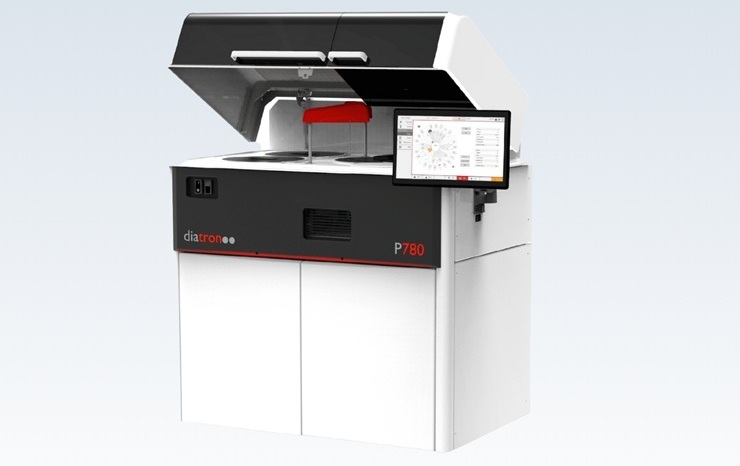
New Clinical Chemistry Analyzer Designed to Meet Growing Demands of Modern Labs
A new clinical chemistry analyzer is designed to provide outstanding performance and maximum efficiency, without compromising affordability, to meet the growing demands of modern laboratories.... Read more
New Reference Measurement Procedure Standardizes Nucleic Acid Amplification Test Results
Nucleic acid amplification tests (NAATs) play a key role in diagnosing a wide range of infectious diseases. These tests are generally known for their high sensitivity and specificity, and they can be developed... Read moreMolecular Diagnostics
view channel
RNA Screening Test Could Detect Colon Polyps Before They Become Cancerous
Colorectal cancer has become a growing health crisis, especially as it increasingly affects younger adults in their 20s, 30s, and 40s, while screening rates remain low. Colorectal cancer is now the leading... Read more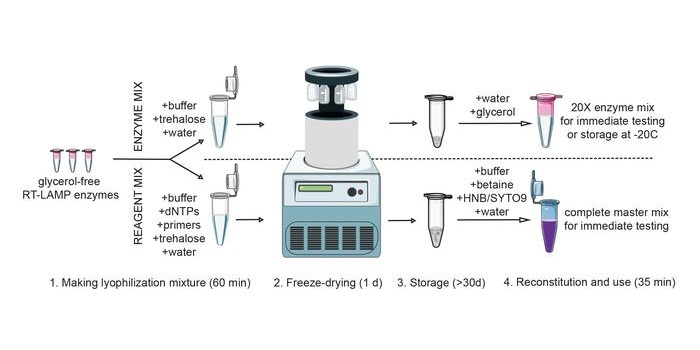
New RT-LAMP Assay Offers Affordable and Reliable Pathogen Detection for Resource-Limited Settings
The high cost and logistical complexities associated with rapid, point-of-care tests have long hampered widespread access to molecular diagnostics, especially in low- and middle-income countries.... Read more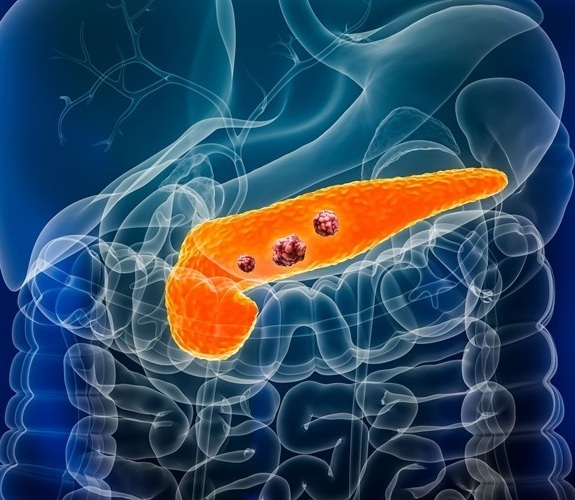
New Biomarker Panel to Enable Early Detection of Pancreatic Cancer
Pancreatic cancer (PC) has one of the worst prognoses globally, with only 13% of diagnosed patients surviving for five years or more. In Ireland, there are about 900 cases of pancreatic cancer annually,... Read more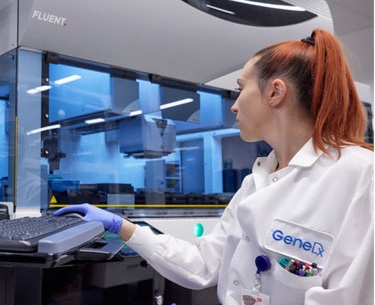
Ultrarapid Whole Genome Sequencing for Neonatal and Pediatric Patients Delivers Results In 48 Hours
Genetic diseases are the leading identifiable cause of infant mortality, and early diagnosis is crucial to improve patient outcomes. In the neonatal and pediatric intensive care units (NICU and PICU),... Read moreHematology
view channel
Disposable Cartridge-Based Test Delivers Rapid and Accurate CBC Results
Complete Blood Count (CBC) is one of the most commonly ordered lab tests, crucial for diagnosing diseases, monitoring therapies, and conducting routine health screenings. However, more than 90% of physician... Read more
First Point-of-Care Heparin Monitoring Test Provides Results in Under 15 Minutes
Heparin dosing requires careful management to avoid both bleeding and clotting complications. In high-risk situations like extracorporeal membrane oxygenation (ECMO), mortality rates can reach about 50%,... Read moreImmunology
view channel
Evolutionary Clinical Trial to Identify Novel Biomarker-Driven Therapies for Metastatic Breast Cancer
Metastatic breast cancer, which occurs when cancer spreads from the breast to other parts of the body, is one of the most difficult cancers to treat. Nearly 90% of patients with metastatic cancer will... Read more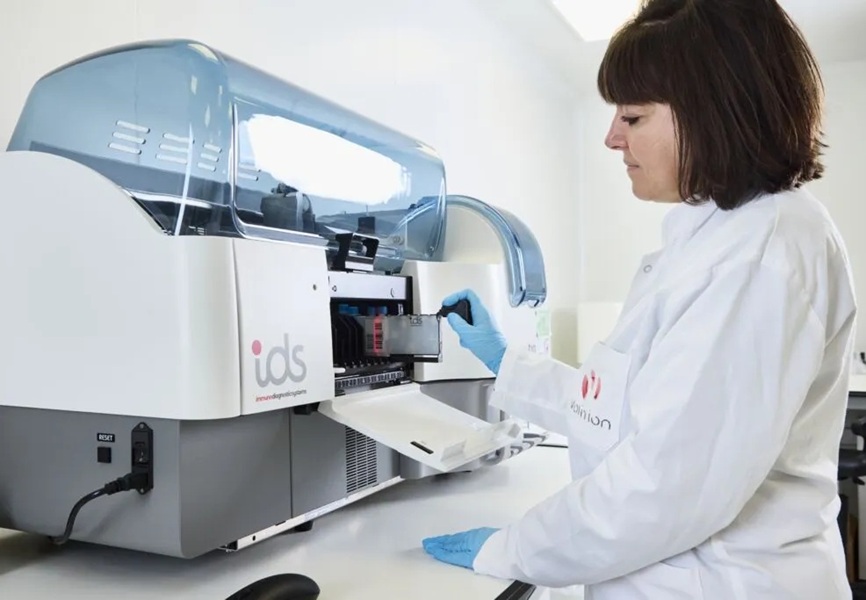
Groundbreaking Lateral Flow Test Quantifies Nucleosomes in Whole Venous Blood in Minutes
Diagnosing immune disruptions quickly and accurately is crucial in conditions such as sepsis, where timely intervention is critical for patient survival. Traditional testing methods can be slow, expensive,... Read moreMicrobiology
view channel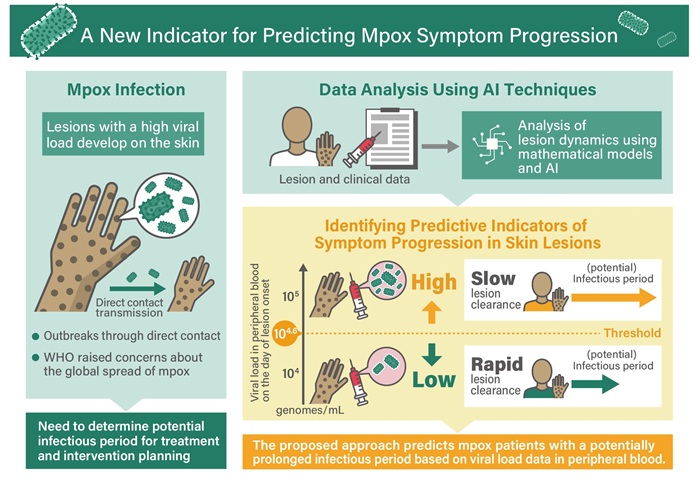
Viral Load Tests Can Help Predict Mpox Severity
Mpox is a viral infection that causes flu-like symptoms and a characteristic rash, which evolves significantly over time and varies between patients. The disease spreads mainly through direct contact with... Read more
Gut Microbiota Analysis Enables Early and Non-Invasive Detection of Gestational Diabetes
Gestational diabetes mellitus is a common metabolic disorder marked by abnormal glucose metabolism during pregnancy, typically emerging in the mid to late stages. It significantly heightens the risk of... Read moreTechnology
view channel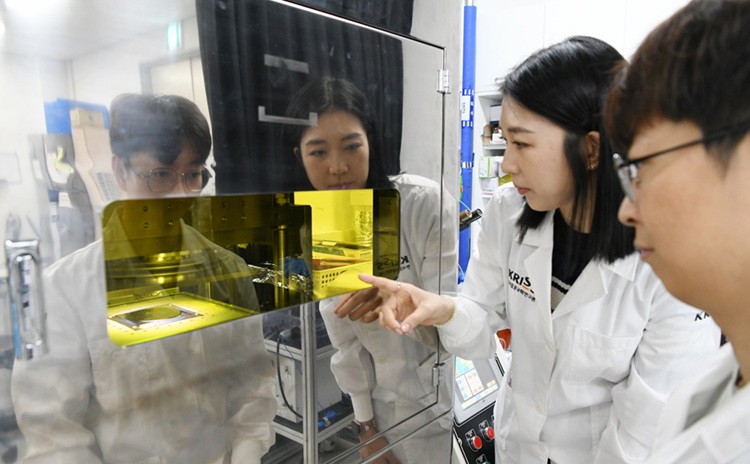
Multifunctional Nanomaterial Simultaneously Performs Cancer Diagnosis, Treatment, and Immune Activation
Cancer treatments, including surgery, radiation therapy, and chemotherapy, have significant limitations. These treatments not only target cancerous areas but also damage healthy tissues, causing side effects... Read more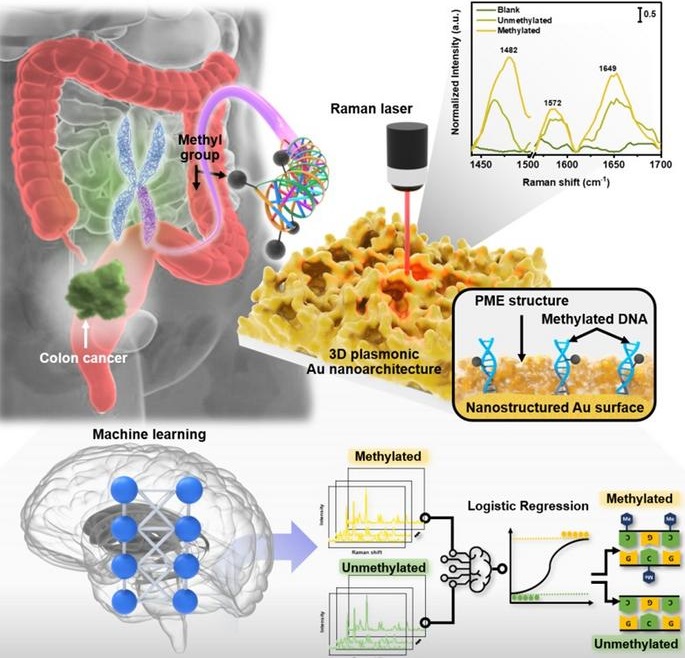
Ultra-Sensitive Biosensor Based on Light and AI Enables Early Cancer Diagnosis
Cancer diagnosis is often delayed due to the difficulty in detecting early-stage cancer markers. In particular, the concentration of methylated DNA in the bloodstream during the early stages of cancer... Read moreIndustry
view channel
BD Biosciences & Diagnostic Solutions to Merge with Waters
BD (Becton, Dickinson and Company, Franklin Lakes, NJ, USA) and Waters Corporation (Milford, MA, USA) have entered into a definitive agreement to combine BD's Biosciences & Diagnostic Solutions... Read more






